Rare at the 2025 UN Ocean Conference
The third United Nations Ocean Conference (UNOC3) took place in Nice, France from June 9-13 2025 convening nearly 200 countries and over 15,000 participants to work together on accelerating action and mobilizing all actors to conserve and sustainably use the ocean.
Countries adopted the Nice Ocean Action Plan, which emphasized the interlinkages between the ocean, climate action, and biodiversity, and called for global action across UN frameworks to help ensure the health, sustainable use, and resilience of the ocean. The declaration also recognized that accelerating ocean action requires a significant increase in global ocean finance – and ensuring this finance is more accessible and equitable.
Rare’s engagement at UNOC3 centered on advancing community-led conservation of the ocean through empowered local leadership, people and community-driven policy, and innovative financial solutions for delivering resources to communities on nature’s frontlines. This report-out includes highlights from Rare’s engagement with government officials, ocean advocates, partner NGOs, and other members of civil society.
Topline Takeaways
The Nice Ocean Action Plan recognized both the disproportionate impact coastal communities face due to climate change and ocean degradation – and the unique role coastal communities can play in driving ocean solutions. The Plan:
- Underlined the need for the global community to support coastal communities, including small-scale and artisanal fishers, Indigenous Peoples and local communities, in developing and implementing locally led adaptation measures and managing marine resources.
- Emphasized that ocean action must be based on the best available science and knowledge, including integrating traditional knowledge and local knowledge systems, and respecting the rights of Indigenous Peoples and local communities in conserving, restoring, and sustainably using the ocean and marine resources.
- Recognized the contributions of area-based management tools, including Marine Protected Areas (MPAs), Other Effective area-based Conservation Measures (OECMs), and community-based resource management, to support the health and resilience of ocean and coastal ecosystems and the coastal communities that depend on them.
- Called on countries to strengthen integrated coastal zone management to enhance the resilience of coastal ecosystems and communities, with a commitment to nature-based solutions to protect, conserve, and restore coastal ecosystems such as mangroves, seagrasses, and coral reefs.
Ocean-Climate Action and the Road to COP30
At UNOC3, eyes were already looking ahead to November’s UN Climate Conference in Belém, Brazil, where the role of ocean- and nature-based climate solutions will take center stage.
Brazil’s Mangrove Ambition for COP30

Brazil’s endorsement paves the way for additional Brazilian coastal states, including those that are part of the Amazon mangrove ecosystem, to endorse with their own subnational commitments to protect and restore mangroves. Rare Brazil is working closely with the state governments of Pará, Amapá, and Curaçá on their own mangrove protection commitments and strategies.
COP30 is more than just a conference: it is a real opportunity to put the ocean at the heart of climate decisions. And to turn promises into practice.
– Monique Barreto Galvão, VP of Rare Brazil
Centering Local Communities in Ocean-Climate Action
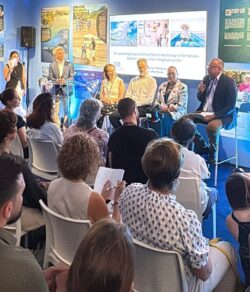
Across UNOC3, Rare worked to center people and local communities in global narratives around mangrove conservation and ocean-climate action. Rare’s UNOC3 delegation included members of the Coastal 500 global network of mayors and local government leaders from Brazil, Honduras, Guatemala, and Indonesia, who met with the Mangrove Breakthrough executive team to discuss the needs and engagement of subnational leaders in driving effective mangrove action on the ground.
Mayor Hector Mendoza of Trujillo, Honduras spoke on the panel “Uniting for Impact” alongside representatives of the Development Bank of Latin American and the Caribbean (CAF), HSBC, and the governments of Spain, Mexico, and Brazil to call for community empowerment and investment in local leadership to achieve mangrove goals.
Bloomberg Philanthropies expands support for Rare, mangrove action, and the COP30 agenda
Bloomberg Philanthropies Ocean Initiative (BOI) announced expanded support for Rare as part of a $6.8 million investment to bolster the conservation of Brazil’s ocean and coastal ecosystems. The support for Rare will go toward partnering with local and Indigenous communities in Brazil’s Pará and Amapá states to conserve and restore mangrove ecosystems. BOI is also supporting the Global Mangrove Alliance to advance new national and subnational Mangrove Breakthrough endorsements at COP30 in Belém to build momentum, unlock investment, and position mangroves as a central climate solution on the road to COP31.
Local Leadership Drives Ocean Action
UNOC recognized both the disproportionate impact coastal communities face due to climate change & ocean degradation – and the unique role coastal communities can play in driving ocean solutions.
The delegation of Coastal 500 local leaders amplified the voices of frontline coastal communities leading on local ocean action. Together, Mayors Hamilton Brito (Brazil), Francisco Queiroz de Oliveira (Brazil), Hugo Sarceno (Guatemala), Roselyn Asok (Philippines), Bachrun Labuta (Indonesia), Hector Mendoza (Honduras), and Juan Ramon Manaiza (Honduras) brought critical perspectives and calls to action to the global stage at events on topics ranging from fisheries, aquaculture, climate adaptation, ocean finance, and research and data innovation.
Accelerating Local Action for SDG14
The Coastal 500 mayors joined 200+ mayors and other leaders from across the globe to launch the Ocean Rise & Coastal Resilience Coalition, focused on helping coastal cities adapt to climate change. Mayor Hector Mendoza of Trujillo, Honduras, delivered remarks on the unique adaptation needs of rural coastal municipalities in the Global South, and the role of nature-based solutions in supporting coastal resilience.
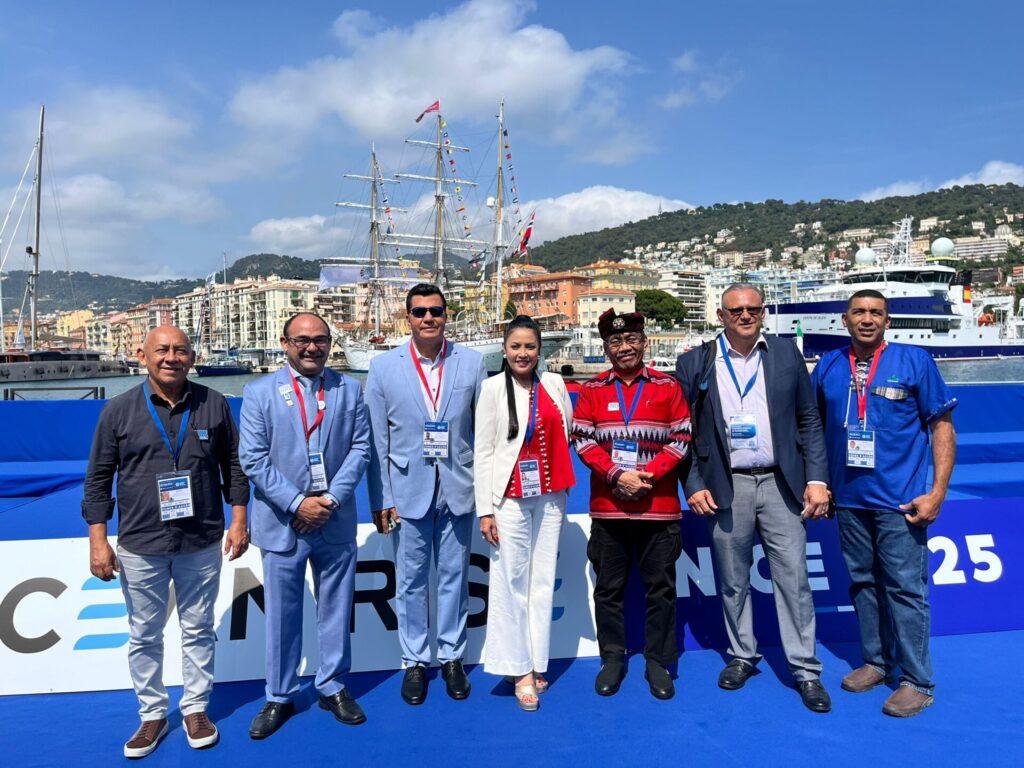
Local Leaders Roundtable: Accelerating Local Action for SDG14
Rare, the Global Island Partnership, Coastal 500, Local2030 Islands Network, and Bloomberg Philanthropies co-hosted a roundtable with 30+ fishing and community leaders from 12 countries and territories to spotlight local solutions driving progress for SDG14.
Key Takeaways
Coastal 500 members demonstrated that community-led solutions are not only effective but essential to achieving global goals, from 30×30 to climate resilience and SDG 14: Life Below Water.
Sessions repeatedly affirmed the financing gap for rural and coastal communities. Mayors made a unified call for dedicated, accessible funding streams to scale what works.
Meaningful inclusion in decision-making, especially for local governments, coastal communities and Indigenous Peoples, was underscored as a non-negotiable element of just and sustainable ocean governance.
The output was a powerful joint statement calling for greater investment in local action.
Coastal 500 members Call for Greater Investment in Community-level Action
In an op-ed published by Together for the Ocean ahead of UNOC3, government leaders from the coastal Global South and members of Coastal 500 Mayor Alfredo Coro II. (Del Carmen, Siargao Islands, Philippines), Mayor Bachrun Labuta (Muna District, Indonesia) and Mayor Hamilton Brito (Curuçá, Brazil) call for greater investment in community-level action at the UN Ocean Conference and beyond.
Getting Ocean Finance to the Frontlines
Despite global attention, the ocean economy remains critically underfunded and the finance that does get delivered often does not reach the communities leading ocean work directly. The challenge of effective and equitable ocean financing loomed over UNOC. At the Blue Economy & Finance Forum (BEFF), 8.7 billion Euros were committed to be deployed over the next 5 years into ocean action and a blue economy from philanthropists, private investors, and public banks.
Across the BEFF and UNOC, Rare’s Innovative Finance team and Coastal 500 leaders worked to highlight ocean finance solutions to support locally led action, from working with diverse groups of funders on corporate and private sector engagement for ambitious ocean protection, to highlighting our work on parametric insurance and outcome-based financing.
Prioritizing and investing in local communities
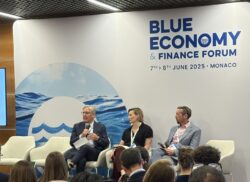
At the BEFF, Rare convened public and private finance leaders together with implementing organizations to discuss how new capital is scaling coastal conservation and sustainable aquaculture to deliver impact for communities on the ground. In a session titled “Financing the Future of Coastal Communities,” co-hosted with partners from Bloomberg Ocean Fund, DEFRA, Agence Française de Développement (AFD), Levoca, Abalobi, Aqua-Farms Organization, Wetlands International, Aqua-Spark, Deliberate Capital, and ORRAA.
Outcome-based finance
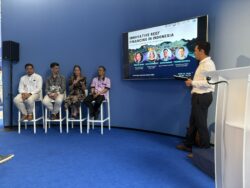
Innovative financing models—such as outcome-based finance, which ties funding to measurable social or environmental outcomes and leverages diverse capital sources to unlock, diversify, or de-risk investments—were central to discussions on closing the ocean finance gap. Rare’s Small-Scale Fisheries Bond was highlighted throughout BEFF and UNOC as a leading example of multi-stakeholder collaboration to protect marine ecosystems within the blue economy.
Blue Carbon
At UNOC3, a common theme was the sustainable financing needed to protect, restore, and manage blue carbon ecosystems and the communities who rely on them. Across a series of discussions focused on blue carbon finance, Rare raised the importance of mangroves and seagrass meadows for climate action and sustainable livelihoods and accelerating business leadership for scaling blue carbon investments.
Coming soon: Rare along with partners from Conservation International and the International Blue Carbon Institute will launch a paper ‘Beyond Carbon Credits: Demystifying Non-Carbon Marker Approaches for Blue Carbon Ecosystems’ that details the wide variety of non-carbon market approaches and financing instruments that can support blue carbon projects at the local level.
Financing Ocean Protection
A new report entitled The Ocean Protection Gap: Assessing Progress toward the 30×30 Target, which debuted at UNOC3, warns that global marine protection efforts are critically underfunded, with just $1.2 billion a year currently flowing to ocean protection efforts – a fraction of the $15.8 billion needed annually to deliver the target of protecting and conserving at least 30% of the ocean by 2030.
At the report launch event, Mayor Hector Mendoza of Coastal 500 provided a frontline perspective on financial barriers to ocean conservation, underscoring the need for direct investment and accessible finance at the local level, and matching global ambition with local community investment.
Also read: Forbes: The $15.8 Billion Gap: The Smart Economics Of Ocean Protection
Driving Progress on Ocean Protection and the 30x30 Target
The race to protect 30% of the ocean by 2030 was a major theme at UNOC3. Only 8.3% of the ocean is protected – 0.5% more than when the Global Biodiversity Framework established the goal in 2022. At the current trajectory, only 9.7% of the ocean will be protected by 2030. Loose regulations and enforcement mean that many of the so-called protected areas that contribute to that number are vulnerable to destructive activities including bottom trawling. In fact, less than 3% of the ocean is fully protected from damage caused by human activity. At UNOC3, governments and civil society stepped up to drive progress on ocean protection.
Progress on the ratification of the High Seas Treaty
19 countries ratified the High Seas Treaty at UNOC, bringing the total count to 50 – with another 12 countries committing to do so. With 60 ratifications required for the treaty to enter into force, we’re close to the finish line. The ratification of the High Seas Treaty will close a critical gap in ocean protection by enabling the creation of marine protected areas in areas beyond national jurisdiction.
Local leaders are at the heart of coastal protection
Together with securing ocean protection in the high seas, expanding and enhancing coastal protection is critical to achieve 30×30—particularly for the 113 million people, primarily in the Global South, that depend on small-scale fisheries in coastal waters for food and income. Locally led solutions like OECMs can enhance food security, community resilience, and economic prosperity for communities around the world.
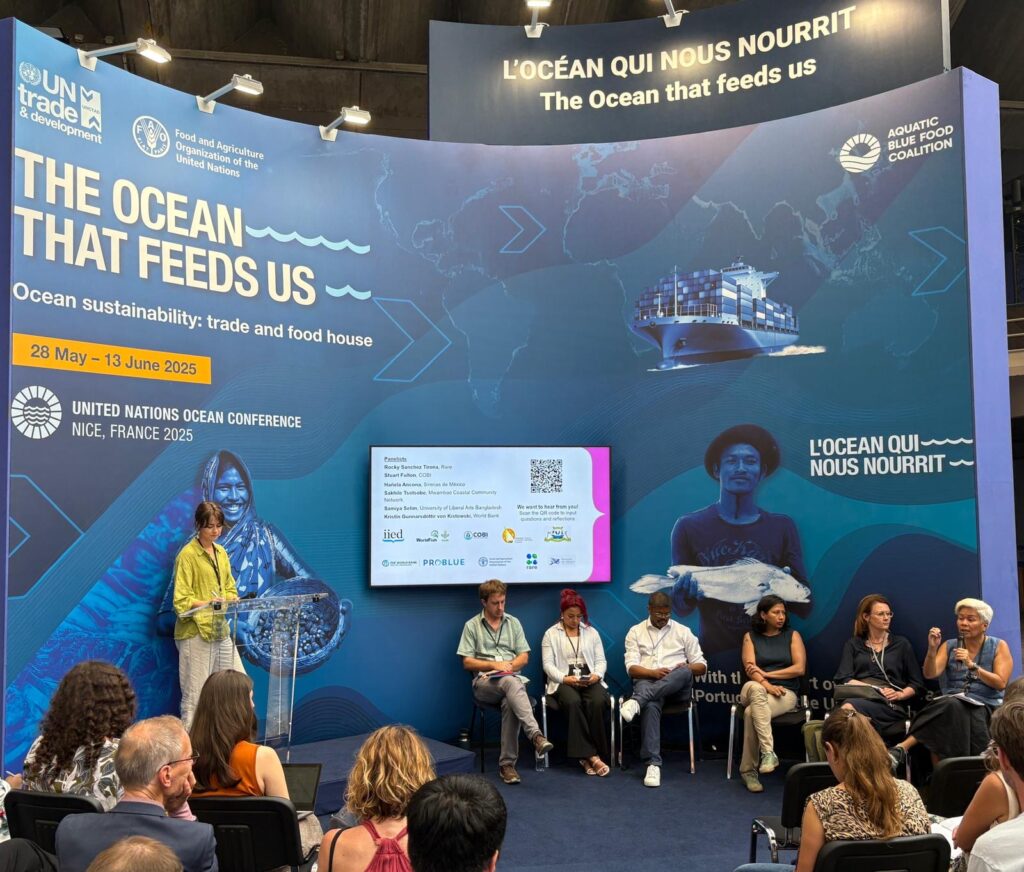
At UNOC3 Rare joined the Revive Our Ocean Collective, which includes leading ocean conservation, fishing, and tourism organizations and entrepreneurs, starting in the UK, Portugal, Greece, Turkey, the Philippines, Indonesia, and Mexico. Our years of championing community stewardship of their coastal waters, policy reform, applying science-based conservation strategies, and elevating local leadership have led us to this exciting moment — an opportunity to connect deep local expertise with global strategy and mentor others in how creating highly protected MPAs combined with sustainable use zones can be a pathway for conservation and economic prosperity to go hand in hand.
Commentary: The push for 30×30 ocean protection goal needs to be locally led
In an op-ed for Dialogue Earth, Rare’s Rocky Sanchez Tirona writes that thinking big about ocean protection means focusing on local communities.
Pacific Leadership towards 30×30
The Pacific Islands took major steps towards ocean protection at UNOC3. The Unlocking Blue Pacific Prosperity Initiative convened Pacific leaders and the global ocean and finance communities around what could be the largest coordinated conservation effort in history—a regional commitment to protect 30% of the Blue Pacific Continent, and sustainably manage 100% of it. In total, the commitment encompasses 42 million km2—an area the size of Europe. The session highlighted regional leadership and innovative finance strategies aligned with Pacific priorities, from high seas cooperation to terrestrial and near-shore stewardship.
Rare has been proudly supporting the co-design process to develop the action plan for making this vision of a regenerative Blue Pacific economy a reality.
At the UN Ocean Conference, it was heartening to see attention shifting from 30×30 commitments and more towards implementation—more people were asking what local communities and actors will need to ensure that 30×30 delivers for biodiversity and for people.” – Rocky Sanchez Tirona, Managing Director, Rare’s Fish Forever program
Delegation
Delegation Spotlight
Rare’s delegation to UNOC3 will include local leaders representing coastal communities, including members of the Coastal 500 network.